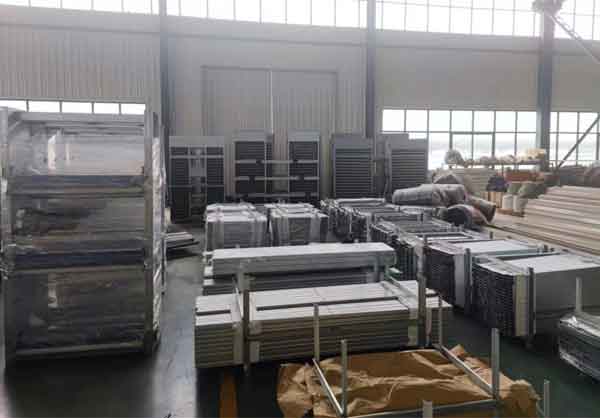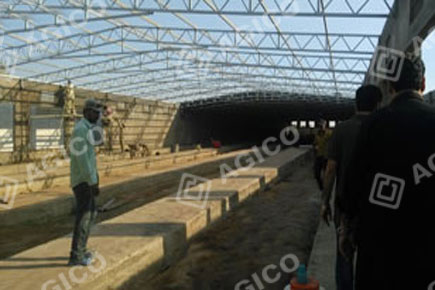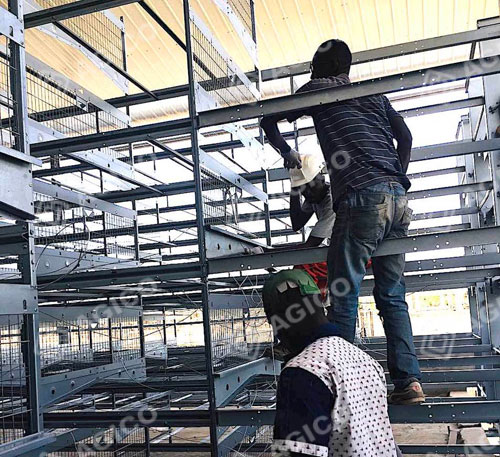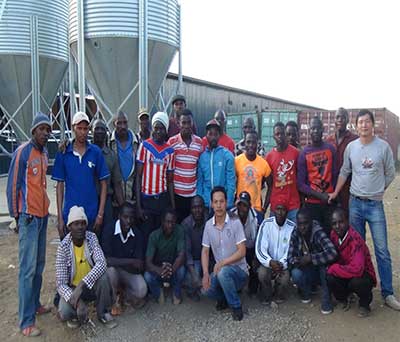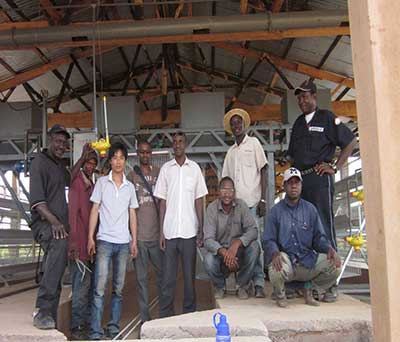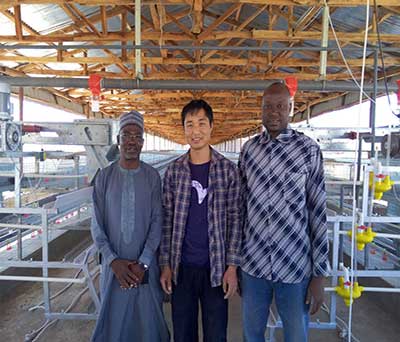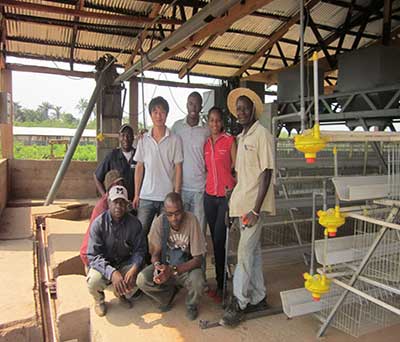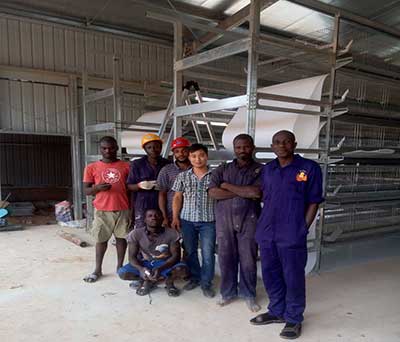Raising chickens for eggs and meat has become a popular hobby as more and more people show interest in sustainability and self-sufficiency. Providing your chickens with a safe and comfortable living space is critical to ensuring that your chickens are healthy and productive. Using a chicken poultry cage is one of the best ways to achieve this. In this post, we will discuss the benefits of using poultry cages, the different types available, and the key things to consider when making your decision.
Benefits of Using a Poultry Cage
A poultry cage is a great investment for any chicken owner. Here are some of the key benefits of using a poultry cage:
- 1. Protection from predators
Predators like foxes, raccoons, and birds of prey can pose a threat to chickens. A poultry cage provides a safe and secure environment for chickens, protecting them from predators.
- 2. Prevention of diseases
Diseases can easily spread among chickens that are living in close quarters. A poultry cage helps to prevent the spread of diseases by keeping chickens separated from each other.
- 3. Better egg quality
When chickens are living in a clean and stress-free environment, they are more likely to lay high-quality eggs.
- 4. Easy to maintain
A poultry cage is easy to clean and maintain. Regular cleaning helps to prevent the buildup of bacteria and ensures that chickens are living in a healthy environment.
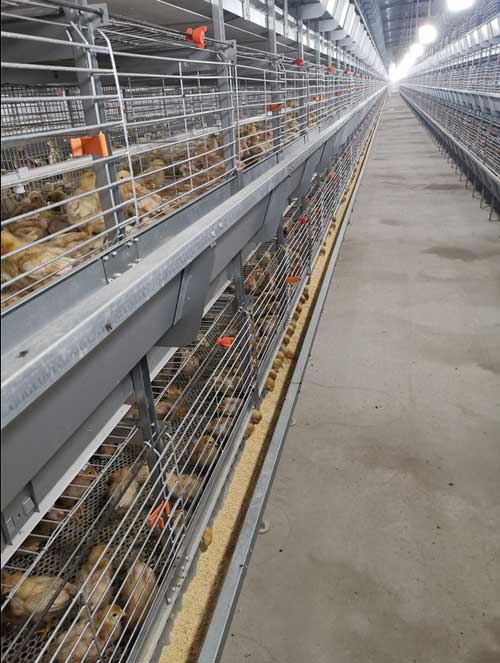
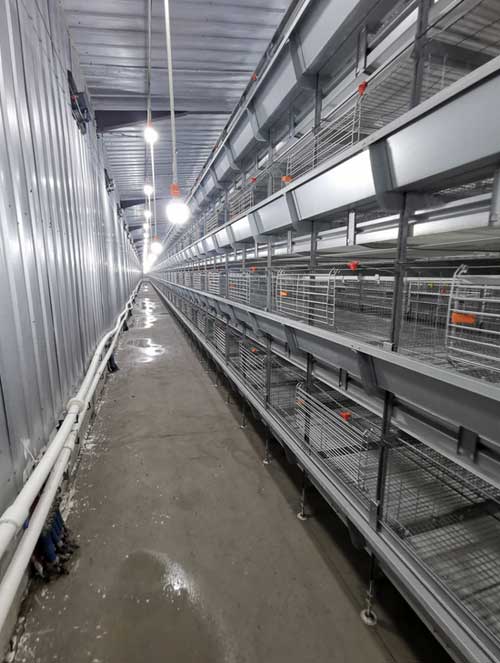
Types of Poultry Cages
There are different types of poultry cages available on the market. Here are some of the most common types:
- 1. Battery cages
Battery cages are small cages that house several chickens. They are commonly used in commercial egg production because they take up less space and allow for easy collection of eggs. However, they are not ideal for backyard chicken owners because they do not provide enough space for chickens to move around.
- 2. Free-range cages
Free-range cages provide chickens with access to the outdoors while still keeping them contained. They have a run attached to the cage where chickens can move around and peck at the ground. Free-range cages are a good option for chicken owners who want their chickens to have access to fresh air and sunshine.
- 3. A-frame cages
A-frame cages are shaped like an A and provide chickens with a lot of space to move around. They are easy to move around and can be placed in different areas of the yard. However, they are not ideal for areas with harsh weather conditions because they do not provide enough protection from the elements.
- 4. H-frame cages
H-frame cages are a type of poultry cage that is commonly used in commercial egg production. The name “H-frame” comes from the shape of the cage, which is designed in the form of an H when viewed from above.
H-frame cages are typically made of wire mesh and are designed to hold multiple birds in individual compartments. Each compartment is typically equipped with a feed trough and a nipple waterer to provide the birds with food and water.
H-frame cages are popular among commercial egg producers because they allow for efficient use of space and can house a large number of birds in a relatively small area.
H-frame cages remain a popular choice for commercial egg production in many parts of the world. However, it is important for producers to ensure that the cages are properly maintained and that the birds are provided with adequate food, water, and space to move around.
Factors to Consider When Choosing a Poultry Cage
When choosing a poultry cage, there are several important factors to consider. Here are some of them:
Size
The size of the poultry cage should be based on the number of chickens you have. It is important to ensure that each chicken has enough space to move around comfortably.
Material
Poultry cages can be made from different materials such as wood, metal, or plastic. Each material has its own advantages and disadvantages. For example, wooden cages are sturdy but require more maintenance than metal cages.
Ventilation
Good ventilation is important for the health of chickens. Make sure that the poultry cage has adequate ventilation to prevent the buildup of harmful gases.
Easy to clean
Choose a poultry cage that is easy to clean and maintain. This will ensure that your chickens are living in a healthy environment.
A poultry cage is an essential tool for raising healthy and productive chickens. It provides protection from predators, prevents the spread of diseases, and ensures that chickens are living in a healthy environment. When choosing a poultry cage, consider factors such as size, material, ventilation, and easy to clean. By taking the time to choose the right poultry cage for your chickens, you can ensure that they will be happy and healthy for years to come.
FAQs
Q: How often should I clean my poultry cage?
A: You should clean your poultry cage at least once a week, or more frequently if necessary. Regular cleaning helps to prevent the buildup of bacteria and ensures that your chickens are living in a healthy environment.
Q: How many chickens can I keep in a poultry cage?
A: The number of chickens you can keep in a poultry cage depends on the size of the cage. As a general rule, each chicken should have at least 2-3 square feet of space.
Q: Can I use a poultry cage for other types of poultry, such as ducks or geese?
A: Yes, a poultry cage can be used for other types of poultry. However, it is important to ensure that the cage is the right size and has adequate ventilation for the specific type of bird.
Q: Do I need to provide my chickens with additional food and water if they are in a poultry cage?
A: Yes, chickens in a poultry cage still need access to food and water. Make sure to provide them with fresh water and food daily.
Q: Can I build my own poultry cage?
A: Yes, you can build your own poultry cage. However, it is important to ensure that it meets the necessary size and ventilation requirements for your chickens.

